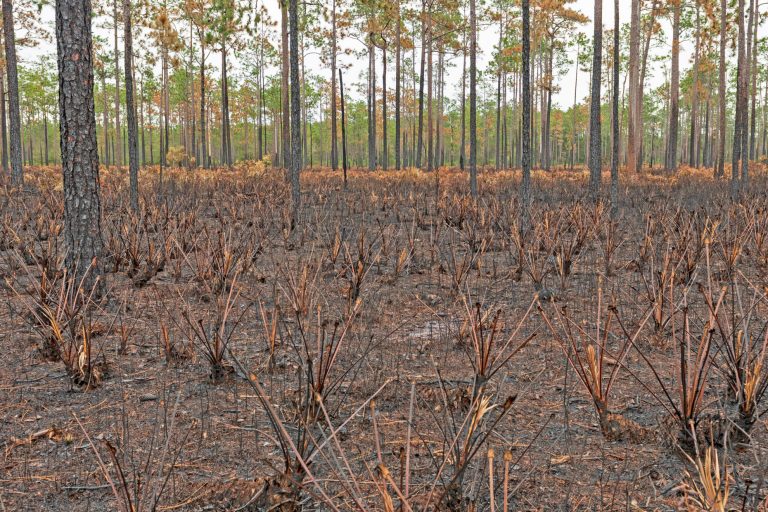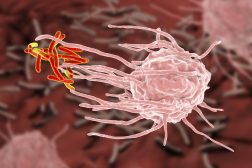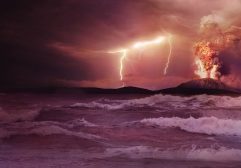Ecosystem Succession

Following a wild fire in a forest land, an ecological succession may ensue.
Just one of the amazing aspects of life on Earth is that it spreads to all areas where the habitat will allow it to survive. In hostile environments, where the soil is infertile, and therefore cannot sustain life in a sustainable fashion, small plants and bacteria begin to colonize the area, which recognizes the area as a new ecological niche without competition.
While these small organisms begin to occupy the area, the pioneers, the organisms that first colonized the area begin to die out. This essential process allows the dead mass to decompose into the ground, and essentially provide nutrients to plants that continue to live in the habitat. Now that there are more nutrients available in the local environment, larger species are able to be supported, and this process can have a multiplying effect over the longer term. This process is called succession.
Succession usually occurs in areas where no other species offer competition in the area. Succession, however, can occur in changing climates, where less suited species give way to the more evolutionary adapted species of the area. In a more stable environment, a climax community develops, the climax being that the community stays in a relative equilibrium over a long period of time. Succession is no longer an issue as the most advanced species have established their presence and lesser organisms cannot compete.
The type of organisms that occupy areas in such circumstances depends on a number of factors. These factors are as follows:
- Climate. Mainly temperature and precipitation, varying species require various amounts of sunlight and temperature to operate at their optimum level. The organisms’ most suited to a particular environment, and the ones that can be found in the vicinity are most likely to be the pioneers, or at the climax of succession
- Soil. Soil also plays a major factor in what organisms occupy an ecosystem. pH is one major factor, as some plants prefer an acidic environment to alkaline or vice versa. The composition of the soil also plays a role in determining which species’ are suitable, as the soil may be sandy, loamy or clay.
- Human Intervention. Humans’ have altered the worldwide environment on a huge scale, particularly since the industrial age. Factors such as pollution, like acid rain, can alter the way an ecosystem operates and effect factors within it. With this in light, humans play a major role in which organisms’ are likely to succeed in an ecosystem.
You will also like...

Homeostasis of Organism Water Regulation
Osmoregulation is the regulation of water concentrations in the bloodstream, effectively controlling the amount of water..

Biological Cell Defense
Organisms employ different strategies to boost its defenses against antigens. Humans have an immune system to combat pat..

Circulation
The circulatory system is key to the transport of vital biomolecules and nutrients throughout the body. Learn about the ..

Human Reproduction
Humans are capable of only one mode of reproduction, i.e. sexual reproduction. Haploid sex cells (gametes) are produced ..

Freshwater Ecology
Freshwater ecology focuses on the relations of aquatic organisms to their freshwater habitats. There are two forms of co..

Origins of Life on Earth
Earth was created around 4.5 billion years ago and life began not long after. Primitive life likely possessed the elemen..
